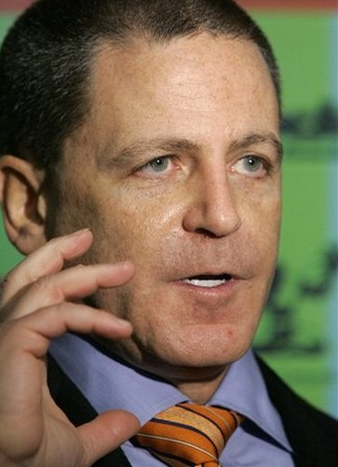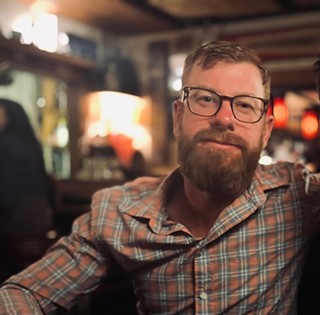
(As plans progress for Cleveland's casino, we'll try to keep you updated on all the dealings, since anything having to do with Dan Gilbert's new printing press should be interesting to Cavs fans. Here's a piece from this week's Scene by Anastasia Pantsios.)
The Cleveland Coalition held its debut event Friday evening at the City Club of Club. A packed house of people of all ages showed up to hear four panelists talk about the potential impact of the new casino on Cleveland, and how to make that impact positive rather than negative. Panelists included architect Christopher Diehl, an associate professor at Kent State University; Len Komoroski, president of the Cavaliers (representing Cavs/casino owner Dan Gilbert); architect David Schwartz; and Hiram College president Thomas Chema.
Diehl and Schwartz spoke about the potential for architecture to connect a casino to city life. Schwartz’s presentation covered how different types of casino designs — the “urban” and “suburban” models — can connect or shut off casino activity from its surrounding environment. His conclusion was that most existing urban casinos follow the “suburban” model, in which the goal is to keep the visitor captive inside. He pointed to the gargantuan casinos lining the Biloxi, Mississippi, waterfront — none of which has beach access.
Komoroski seemed stuck in campaign mode, touting the business acumen and success of his boss, and claiming that attentiveness to “giving voters what they wanted” was responsible for passage of last November’s casino issue after numerous prior failed attempts. (A well-financed campaign that made grand claims about job creation probably didn’t hurt.)
Chema opened by saying “I don’t know why I’m here,” and after his presentation, I wondered as well. His Gateway boosterism omitted the fact that, as executive director of the Gateway Economic Development Corporation in the ’90s, he spearheaded a project that had financial problems — mostly to the detriment of the taxpayers — and failed spectacularly to deliver on its rosy economic promises (we’re still waiting for those 28,000 high-paying, permanent jobs). He insisted that, although the Gateway sin tax barely passed, today you can’t find anyone who will admit to having voted against it (I will!) and that “no one wanted the developers and owners to make money.” He seemed oblivious to the fact that all the profits flowed to the developers and owners, while the taxpayers footed the bills.
The discussion certainly didn’t solve the biggest issue looming over the casino: how to make it a success without draining the life out of other parts of the city, especially downtown. But it did provide some provocative ideas about what success — and failure — might look like.
The Cleveland Coalition is an informal group formed late last year to encourage public engagement and solution-seeking on key civic issues. Founded by Fran DiDonato, Jason Bristol and Eric Wobser, it currently includes a group of nine organizers. DiDonato said they launched with the casino forum because, “It’s sexy. We thought we could get a crowd. After the election, no one was talking about it anymore, and we wanted start creating a dialogue."
Go to clevelandcoalition.org for updates on future events. — Anastasia Pantsios











